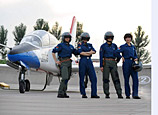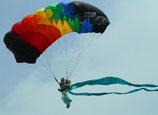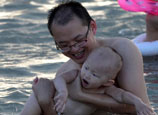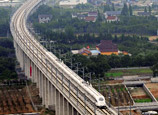
British drugmaker GlaxoSmithKline said yesterday that it is being investigated by government authorities, following reports of its staff bribing doctors.
"We can confirm our offices were visited on June 27 by the China government authorities," the company said in an e-mail statement sent to Shanghai Daily, referring to its offices in Shanghai, Beijing and Changsha.
It said the precise nature or purpose of the visits and investigation was unclear at this stage.
On Friday, police in the central China city of Changsha said they were investigating senior staff of GlaxoSmithKline in China for suspected "economic crimes."
Police are believed to have visited the company's Shanghai office again yesterday, with some staff given the afternoon off. The company refused to comment on Internet postings saying that account books were taken from senior financial executives in the Shanghai office.
The South China Morning Post reported that police had detained company employees in all three cities.
The drugmaker operates a research and development center in Shanghai and six manufacturing sites in China with total investment exceeding 500 million yuan (US$80.6 million), according to its official website.
Last month, the Wall Street Journal reported that the company was conducting an internal investigation into alleged bribery of doctors by sales staff.
The allegations from an anonymous whistleblower involved widespread cash payments and speaking fees given to doctors to induce them to prescribe GSK products to patients to drive sales and take market share.
However, the company later confirmed it found no evidence of corruption or bribery.
A spokesman told the Wall Street Journal: "Over the last four months we have used significant resources to thoroughly investigate each and every claim from this single, anonymous source and have found no evidence of corruption or bribery in our China business."
Early last month, the drugmaker said it had fired its China head of research and development, Zang Jiangwu, after discovering that data in a scientific paper co-authored by Zang had been "misrepresented."
















 China's weekly story (2013 6.22-6.28)
China's weekly story (2013 6.22-6.28)


![]()
